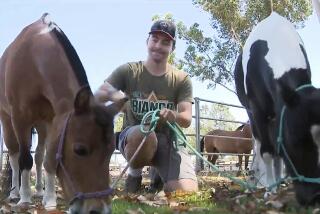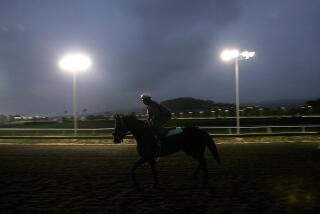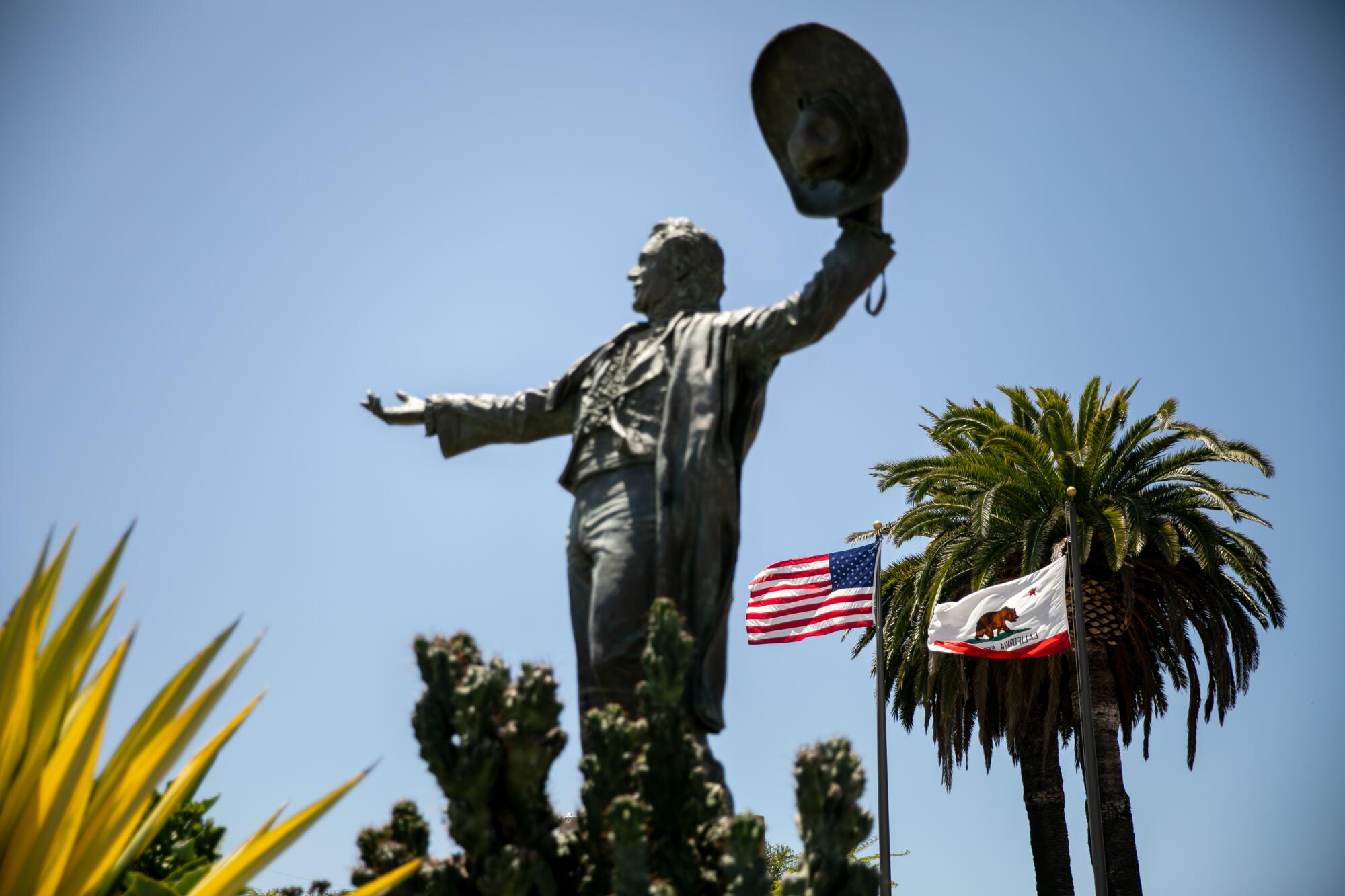
Del Mar Fairgrounds officials said this week that without critical financial assistance the state-owned property could be forced to close.
The loss of the fairgrounds, 340 acres of prime coastal real estate nestled between the upscale communities of Del Mar and Solana Beach, would hurt many residents and have far-reaching economic effects on the region.
Its main event, the San Diego County Fair, was first held in 1880 and last year attracted more than 1.5 million visitors. Scheduled for June 5 through July 5 this year, the fair was cancelled for first time in memory because of the COVID-19 pandemic.
The property is also home to the Del Mar Thoroughbred Club, which holds the annual horse-racing meet inaugurated in 1937 by Bing Crosby. Races are scheduled to resume beginning in July, but without spectators in the grandstands. A second meet will be held in the fall, probably also without guests.
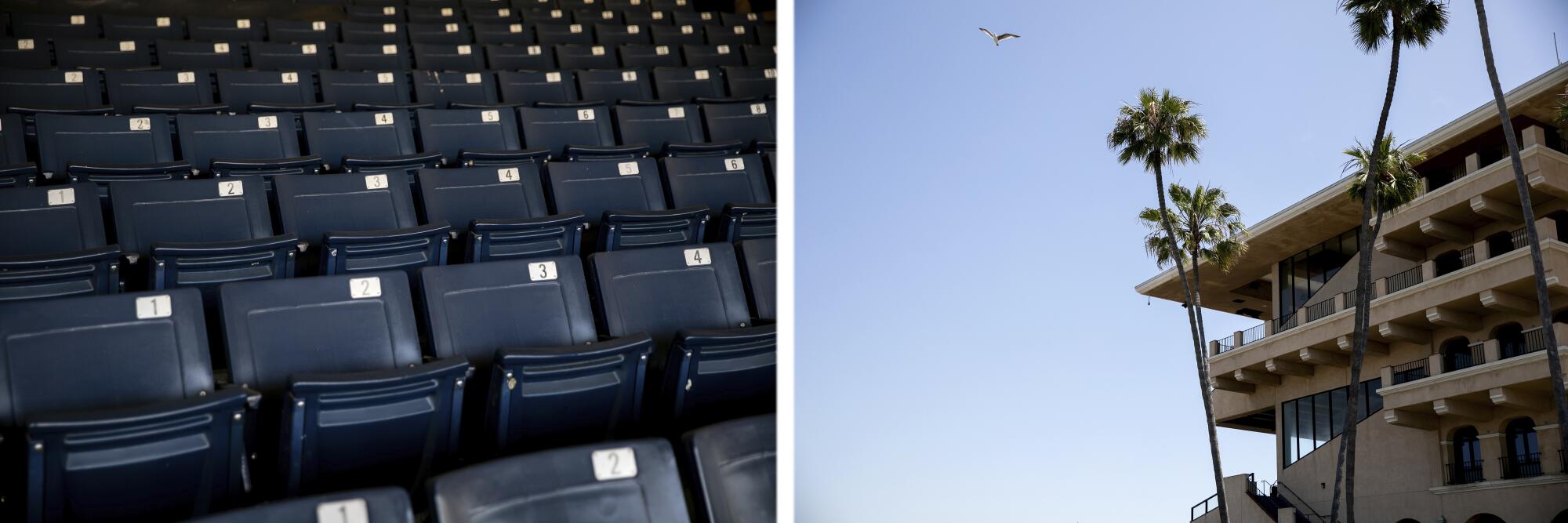
This week, the fairgrounds issued a release urging residents to write their elected officials in support of a request by the 22nd District Agricultural Association, which runs the facility, for a $20 million share of the federal economic aid package available to state and local agencies affected by the COVID-19 crisis.
A website, savethefairgrounds.com provides sample letters, emails and tweets for people to use to lobby local leaders to help the fairgrounds. It lists telephone numbers for elected officials and suggests people can share their fairgrounds photos online, or buy a fairgrounds-printed T-shirt to support the cause.
Fairgrounds employees who would normally be publicizing the annual fair this time of year rechanneled their efforts to create the site, fairgrounds General Manager Tim Fennell said Wednesday.
“We need people’s help,” Fennell said. “I can’t stress that enough.”
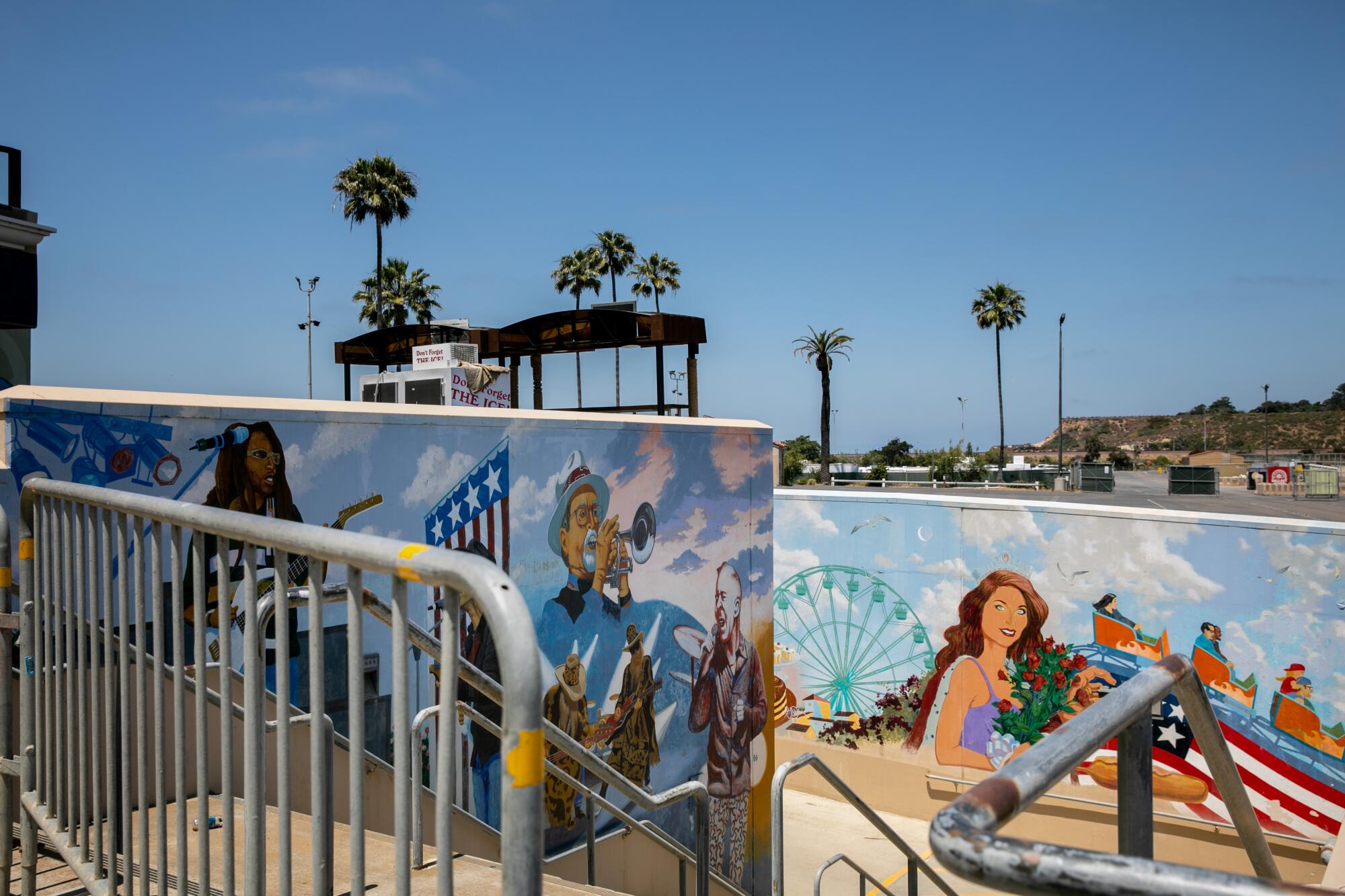
The widespread appeal for public assistance is unusual, but the agricultural district is unlike most government agencies.
Cities, school districts, counties and most other agencies depend largely on revenue from sales and property taxes, or fees for services such as water delivery and trash pickup.
Not so for the agricultural district. Created by state law in the 1800s, the agricultural districts are required to be self-sufficient and rely almost exclusively on revenue produced by the events they hold.
Closure is a last resort, Fennell said, and no one has worked out the details of how that might happen.
“We are cutting costs to a bare minimum,” he said. Part-time and temporary workers have been let go, contracts for services like landscaping and maintenance have been cut, and utility payments have been deferred.
Assemblyman Todd Gloria (D-San Diego) represents the 78th District, which includes the fairgrounds.
“The Del Mar Fairgrounds is a cherished community asset throughout our entire region,” Gloria said Wednesday.
“No one wants to see it close,” Gloria said. “However, we should be sober about the reality that the state is facing a multibillion-dollar deficit due to COVID-19, and everyone will be impacted ... there will need to be conversations about the future governance and operations of fairgrounds throughout the state.
“I strongly encourage the leadership of the 22nd DAA to come to the table with realistic and creative solutions that will ensure its continued operation well into the future,” the assemblyman said.
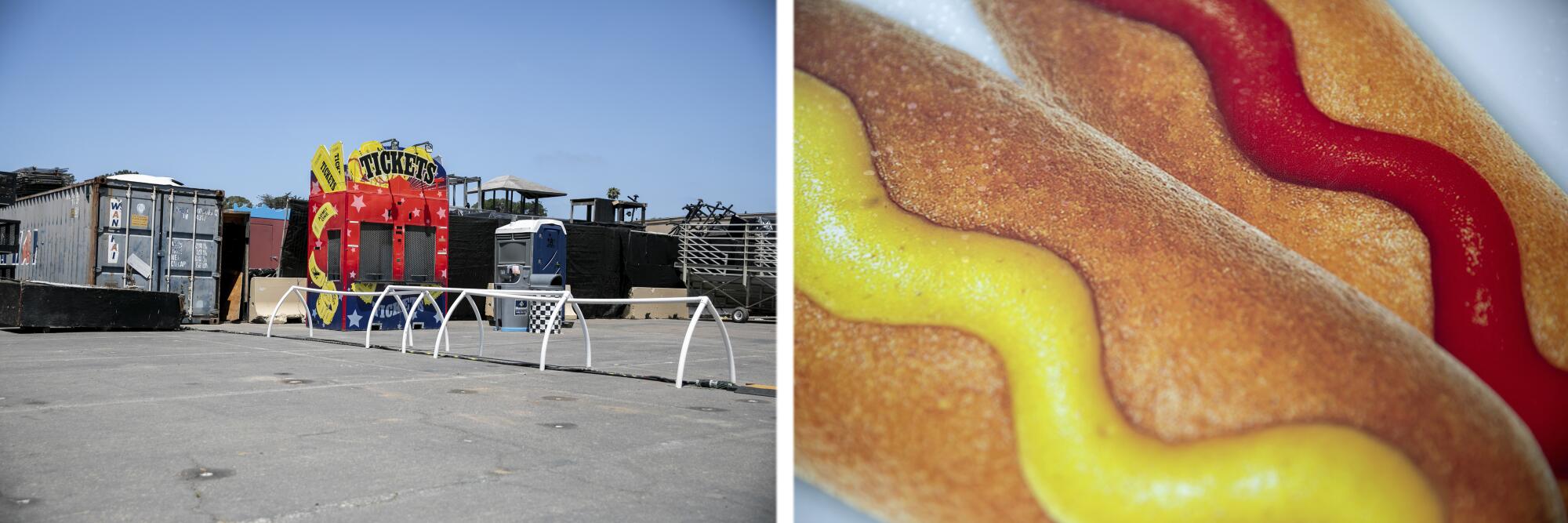
Likewise, Fennell stressed the need for creative solutions to keep the fairgrounds open.
So far, no full-time employees have been laid off, he said, and the government doesn’t allow the district to have furloughs. Many of the employees are in unions that also protect their jobs.
“A lot are working from home or burning off vacation time,” Fennell said. “We are down to a skeleton crew.”
It’s not the first time an economic downturn has threatened the Del Mar Fairgrounds.
Gov. Arnold Schwarzenegger proposed selling the fairgrounds along with other landmark state properties in an effort to raise as much as $1 billion to bolster the state budget. Local elected officials were opposed, and the idea never went further than a few news stories.
The fair is the largest event of the year held at the fairgrounds, lasting 27 days and generating more than half of the district’s $87 million in annual revenue.
Events large and small, more than 300 annually, produce 90% of the fairgrounds’ revenue. But since March, all those activities have been cancelled, and it’s possible there could be no large spectator events at the fairgrounds through the end of this year.
Horse racing is the second-largest revenue producer for the district after the fair.
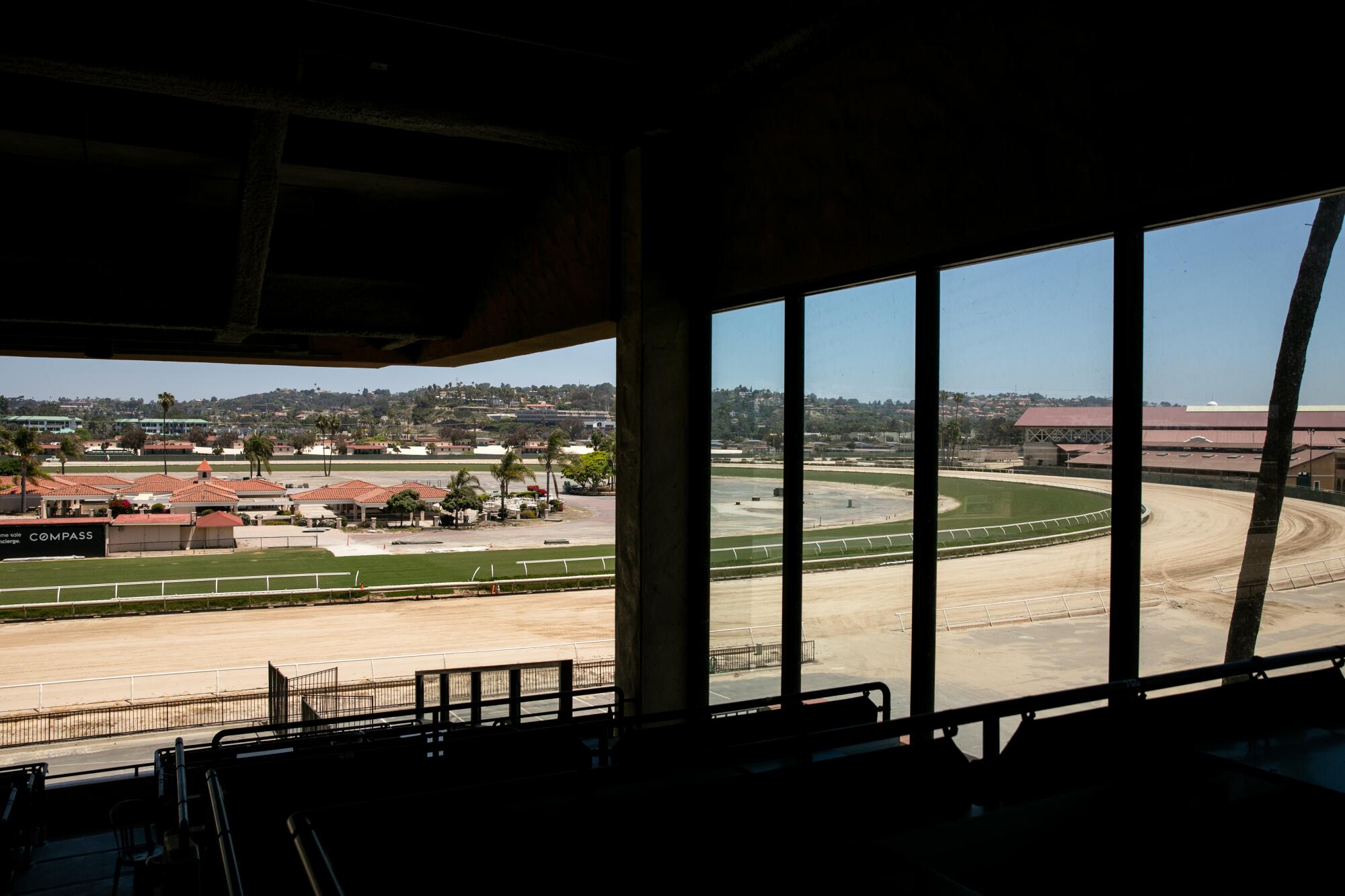
Without spectators in the Del Mar grandstands, there will be less wagering and no income from food and beverage sales, the largest moneymaker for most fairgrounds events.
And the future of horse racing is dim. Animal rights activists have been trying to stop the sport for years, and they’ve been gaining ground recently. Attendance and wagering have decreased significantly.
Fairgrounds expenses continue whether or not there’s revenue to cover them. The district has 156 full-time permanent employees with a total average monthly payroll of $1.7 million, including benefits such as retirement and insurance.
The fairgrounds cover 340 acres and the horse park is 65 acres, all with numerous buildings, landscaping, operating systems and other facilities that require maintenance and upkeep.
There’s also more than $74 million in bond debt for capital projects such as the construction of the racing grandstands and the off-track betting center, the Surfside Race Place, which is now being renovated into a multipurpose entertainment venue. Scheduled to open by the end of this year, the future of the new venue also is in question because of the COVID-19 crisis.
All employees and activities in the district are overseen by the nine-member board of directors appointed to four-year terms by the governor.
The board supports efforts to find creative solutions to the financial crisis, Fennell said.
“They are right behind us,” he said. “We are doing everything we can to keep this facility. I want this fairgrounds to be here forever.”
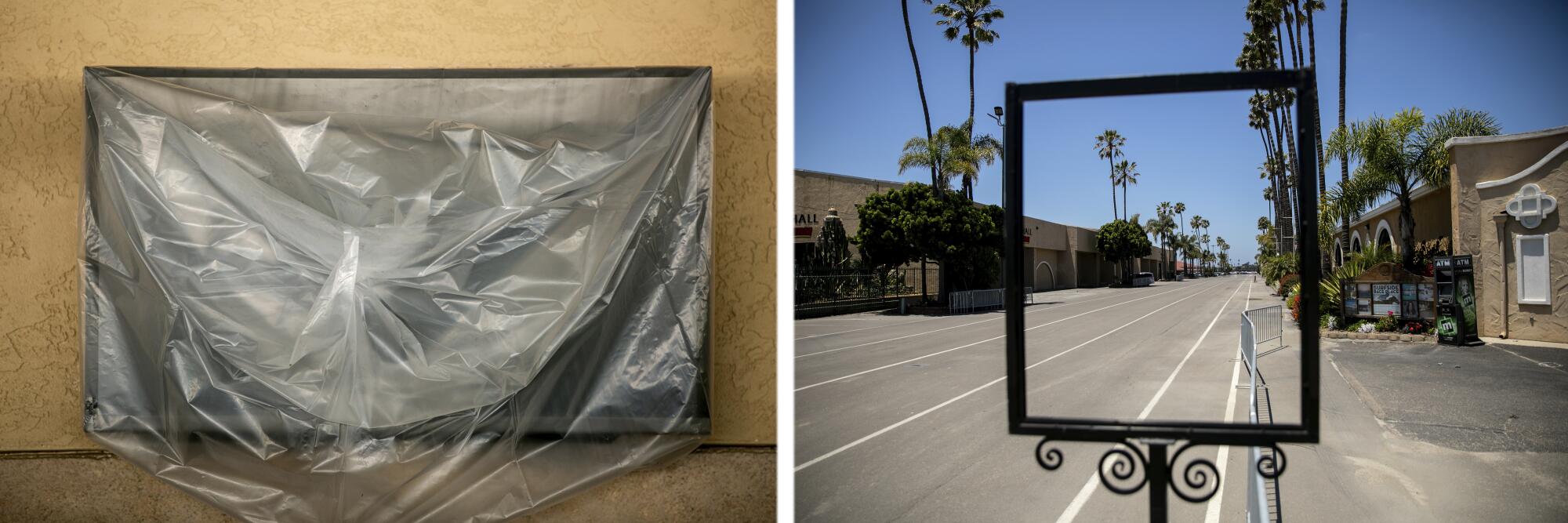
The largest potential source of financial aid to the district could be available from Coronavirus Aid, Relief and Economic Security Act, or CARES Act, passed by Congress in March. However, the $2 trillion allocated by the act is going fast, and the agricultural district appears to be low on the list of potential recipients.
The California state budget is another possibility, Fennell said. This year’s proposed budget includes more than $40 million to be distributed among about 56 agricultural districts in the state.
However, the 22nd DAA, while it has the largest county fair in the state, received only about $25,000 in 2011, the last time a previous state budget included any money for fairgrounds. That indicates that Del Mar’s share in the 2020-21 budget is unlikely to be significant.
Despite the coronavius, the fairgrounds continues to seek innovative ways to make money within the state and county public health guidelines.
In March, the district obtained a contract with rental car giants Alamo, Enterprise and National to store more than 4,000 vehicles in the fairgrounds parking lot. Normally those vehicles would be out as rentals, but the pandemic cut deeply into the business and forced companies to put much of their inventories in storage. The excess cars now fill parking lots at large venues such as football and baseball stadiums across the United States.
Del Mar’s parking rentals brought the district an unexpected $70,000 in April, and this month the contract was renewed. But that money is far short of the revenue needed to cover the cancelled events.
In another unusual venture for the fairgrounds, the staff offered chef-prepared family meals for $44 in late March and early April.
Patrons could order one of three daily offerings online, and drive onto the fairgrounds and pick up their food between noon and 6 p.m. the next day. Despite a few rave reviews, there were not enough orders and the service was discontinued.
The district has continued to collect revenue from a few of its traditional sources despite the pandemic, such as the boarding of animals at the horsepark.
Also, the fairgrounds recently reopened its driving range with new public safety guidelines in place.
Diehl writes for the San Diego Union-Tribune.
More to Read
Sign up for Essential California
The most important California stories and recommendations in your inbox every morning.
You may occasionally receive promotional content from the Los Angeles Times.

